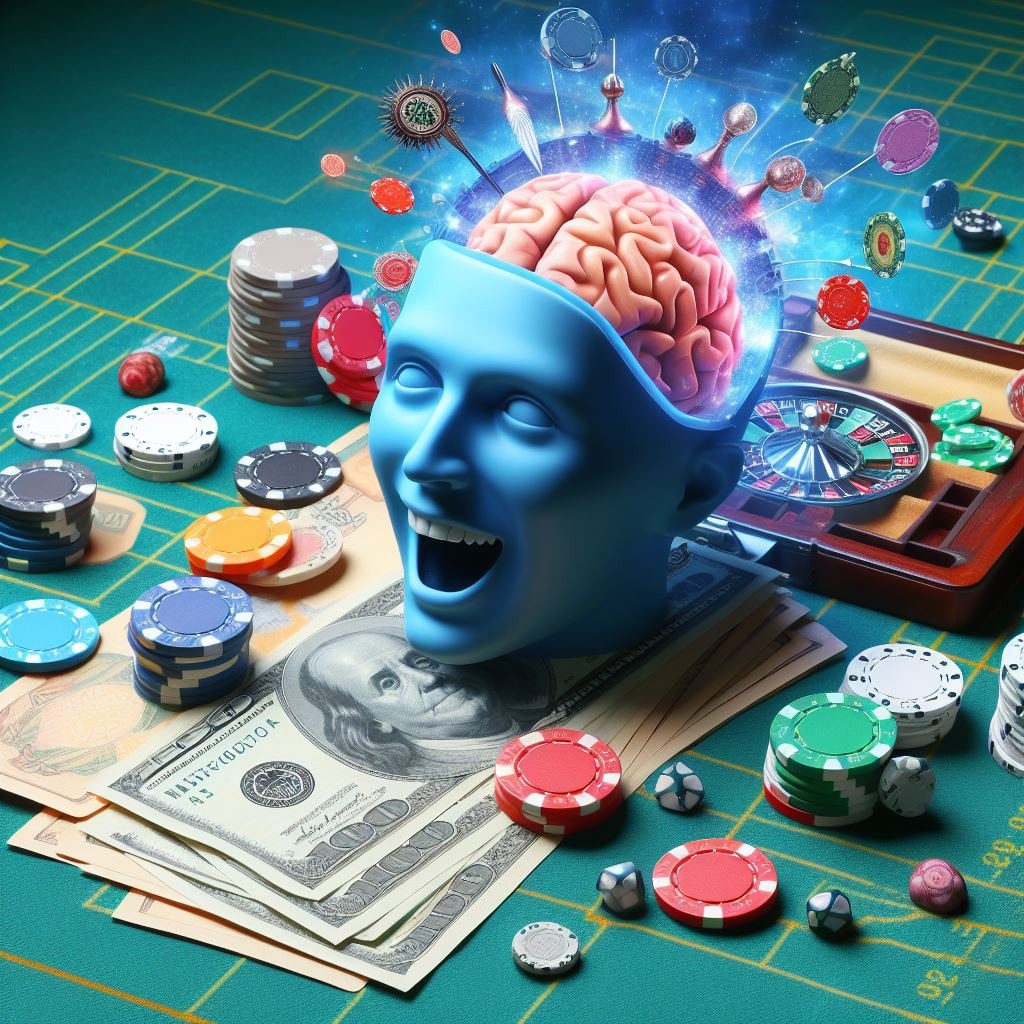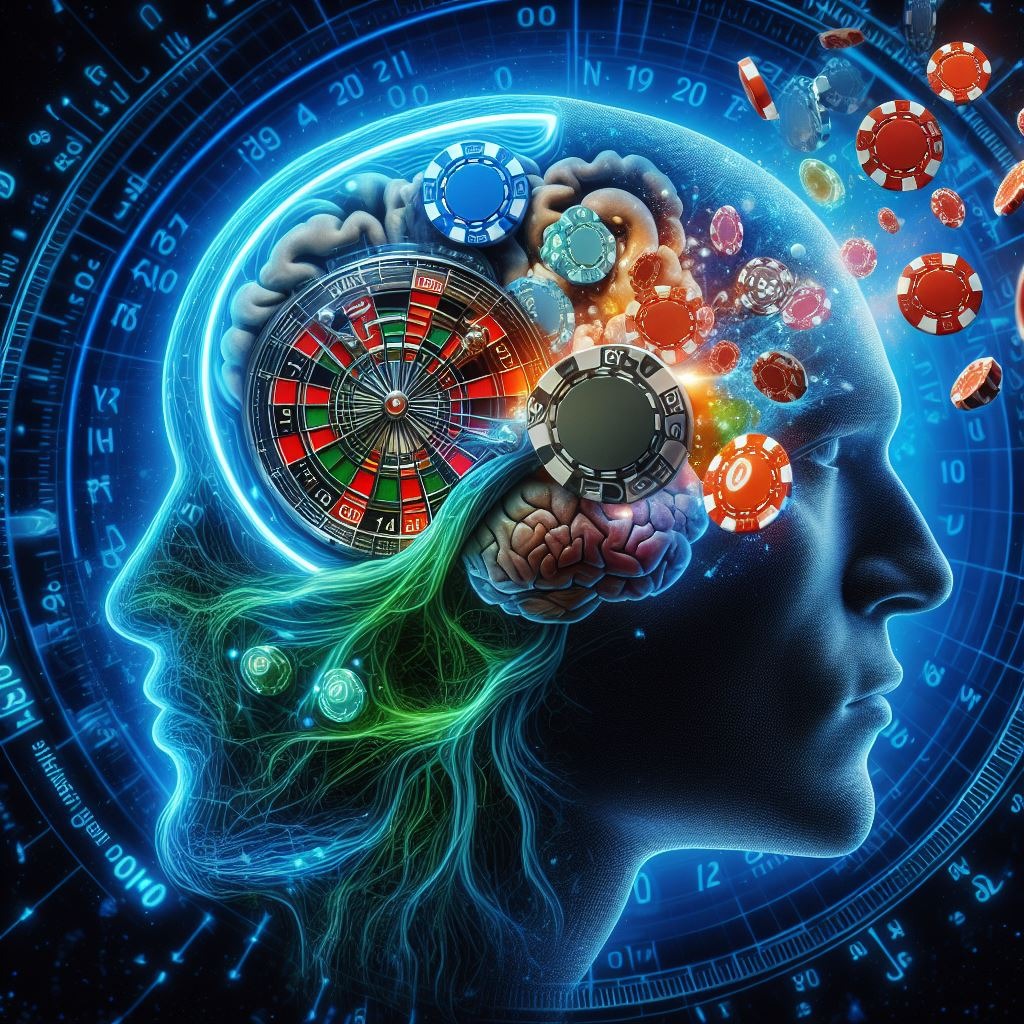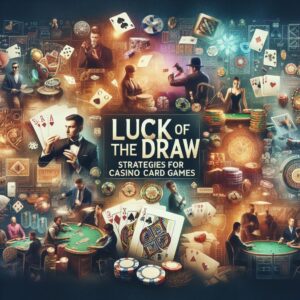
Betting is a fundamental aspect of gambling, encompassing a wide range of activities from casino games to sports wagering. At its core, betting involves risking money or valuables on uncertain outcomes with the hope of winning additional rewards. However, behind the seemingly simple act of placing bets lies a complex web of psychological factors that influence a gambler’s mindset, decision-making processes, and behavior. In this in-depth exploration, we delve into the psychology of betting, uncovering the cognitive biases, emotional responses, and motivational factors that drive individuals to engage in betting activities.
- The Thrill of Uncertainty:
a. Risk and Reward: Betting is inherently tied to the concept of risk and reward. The uncertainty of outcomes creates a sense of excitement and anticipation, driving individuals to seek out betting opportunities in pursuit of potential gains.
b. Dopamine and Pleasure: Neurologically, the anticipation of winning triggers the release of dopamine in the brain, a neurotransmitter associated with pleasure and reward. This dopamine rush reinforces the thrill of betting and motivates individuals to continue placing bets in search of more rewards.
c. Illusion of Control: Despite the inherent randomness of many laying bets activities, individuals often perceive a sense of control over the outcomes, leading to overestimation of their ability to predict results. This illusion of control contributes to continued laying bets behavior, as individuals believe they can influence the outcome through skill or strategy.
- Cognitive Biases in Betting:
a. Confirmation Bias: Gamblers tend to seek out information that confirms their pre-existing beliefs or expectations about laying bets outcomes while ignoring contradictory evidence. This bias can lead to overconfidence in laying bets decisions and reluctance to reconsider or change strategies.
b. Gambler’s Fallacy: The gambler’s fallacy is the mistaken belief that past outcomes influence future probabilities, leading to erroneous laying bets patterns such as chasing losses or expecting a “hot streak” after a series of losses. This fallacy can result in irrational laying bets behavior and financial losses.
c. Anchoring Bias: Anchoring bias occurs when individuals fixate on initial information or reference points when making laying bets decisions. For example, a gambler may anchor their bet size to a previous winning amount, leading to inconsistent and potentially risky laying bets behavior.
- Emotional Factors in Betting:
a. Excitement and Arousal: Betting elicits strong emotional responses, including excitement, arousal, and adrenaline rushes, particularly during high-stakes or competitive laying bets scenarios. These emotions can enhance the overall laying bets experience but may also lead to impulsive or irrational laying bets decisions.
b. Fear and Anxiety: On the flip side, the prospect of losing money or experiencing negative outcomes can trigger fear, anxiety, and stress responses in gamblers. These negative emotions may influence risk aversion, conservative betting strategies, or avoidance of certain laying bets activities.
c. Regret and Loss Aversion: Regret is a common emotion experienced by gamblers, especially after making unsuccessful bets or incurring losses. Loss aversion, the tendency to prefer avoiding losses over acquiring equivalent gains, can lead to risk-averse behavior and reluctance to take calculated risks in laying bets .
See Also:



- Motivational Factors Driving Betting Behavior:
a. Financial Incentives: The potential for financial gains is a primary motivator for many gamblers, driving them to place bets in the hopes of winning money or valuable rewards. The lure of quick profits or jackpot prizes can be particularly enticing.
b. Social Interaction: laying bets activities often involve social interactions, whether it’s laying bets with friends, participating in betting communities, or engaging in live laying bets events. Social factors such as peer pressure, social validation, and group dynamics can influence laying bets behavior and enhance the overall betting experience.
c. Escapism and Entertainment: For some individuals, laying bets serves as a form of escapism from everyday life stressors or boredom. The entertainment value of laying bets , including the thrill of watching live events unfold or engaging in strategic gameplay, can be a significant motivator for continued participation in laying bets activities.
- Responsible Betting Practices:
a. Setting Limits: Responsible laying bets involves setting limits on time, money, and frequency of laying bets activities to avoid excessive losses or negative consequences. Establishing a budget and sticking to it helps maintain control over laying bets behavior.
b. Self-Awareness: Being aware of one’s emotions, motivations, and cognitive biases related to betting is crucial for making informed and mindful betting decisions. Recognizing patterns of impulsive or irrational behavior allows individuals to take steps towards responsible laying bets practices.
c. Seeking Support: If laying bets behavior becomes problematic or addictive, seeking professional help, counseling, or support groups can provide guidance, resources, and strategies for managing and overcoming gambling-related challenges.
Conclusion: The Psychology of Betting
The psychology of betting reveals the intricate interplay between cognitive processes, emotional responses, and motivational factors that shape individuals’ betting behaviors. Understanding the gambler’s mindset involves recognizing the allure of uncertainty, navigating cognitive biases, managing emotions, and fostering responsible betting practices. By shedding light on these psychological dynamics, individuals can make informed decisions, enjoy lay bets activities responsibly, and maintain a healthy balance between risk and reward in their gambling experiences.







